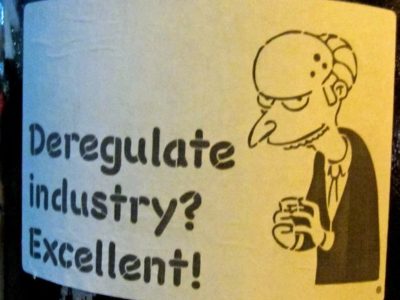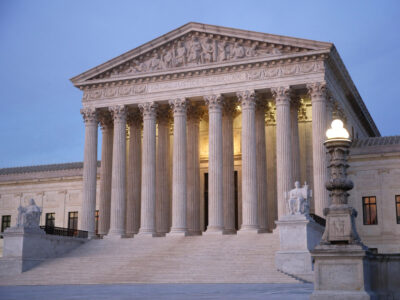regulatory state
Regulatory Rollbacks: What to Expect
A replay of 2017? Or maybe something more radical? You can probably guess the answer.
Repealing and replacing existing environmental regulations will have a lower priority in this iteration of the Trump presidency – it will often be easier to just ignore the existing regulations or eliminate the regulators rather than the regulations. When it does rollback regulations, the administration will probably take more extreme legal positions and will be more likely to make constitutional arguments against environmental regulation.
CONTINUE READINGPresidential Blitzkrieg: Good Tactics, Questionable Strategy
Flooding the zone has short-term benefits but possible long-term costs.
Trump has issued a flood of executive orders. Many of those actions relate to energy and environment, with the general intent of handicapping clean energy and promoting fossil fuels. Flooding the zone has undoubtedly helped him dominate the news and may have stunned opponents. But shirt-ternm success doesn’t always translate into long-term gains.
CONTINUE READINGSchedule F and the Future of the Regulatory State
What is Schedule F? Would it be legal? And why does it matter so much?
Trump has vowed to destroy the “deep state” and to wreak vengeance on his enemies. Something called “Schedule F” is one of the key tools he plans to use as soon as he takes office to “remove rogue bureaucrats,” and he promises to use that tool “very aggressively.”
CONTINUE READINGIs the Sky Falling? Chevron, Loper Bright, and Judicial Deference
Perplexed? Worried? Here’s a guide to a fraught area of law.
If you’re confused about the Supreme Court’s ruling, you’re not alone. Scholars will be discussing the recent ruling for years. It clearly will limit the leeway that agencies have to interpret statutes, meaning less flexibility to deal with new problems. But unlike many commentators, I don’t think the sky is falling. I was teaching environmental …
Continue reading “Is the Sky Falling? Chevron, Loper Bright, and Judicial Deference”
CONTINUE READINGJudicial Deference to Agencies: A Timeline
Decisions about judicial deference to agencies on legal issues didn’t begin or end with Chevron.
The Supreme Court is about to make a major decision about the balance of power between courts and agencies like EPA. Here’s what you need to know about the history if the issue to understand what’s going today.
CONTINUE READINGHow I Learned to Stop Worrying and Love OIRA
OIRA may have had its problems. What we have right now is much worse.
If you’re like most environmentalists, you probably don’t have a high opinion of OIRA, the White House office that’s supposed to oversee regulations. (For those who are new to this, OIRA stands for the Office of Information and Regulatory Affairs.) The complaints are legion: that OIRA lacks transparency, that it acts as a back door …
Continue reading “How I Learned to Stop Worrying and Love OIRA”
CONTINUE READINGThe Witching Auer
The Supreme Court rules on deference to agency interpretations.
The Court’s opinion in Kisor v. Wilkie was eagerly awaited by administrative law experts. It is one skirmish in the ongoing war over deference to agencies. In this case, the issue was whether to overrule the Auer doctrine, which requires courts to defer to an agency’s reasonable interpretation of its own regulations. This doctrine, like …
Continue reading “The Witching Auer”
CONTINUE READINGUnanswered Questions About Cost-Benefit Analysis
We have only fragmentary evidnece about how CBA actually functions in government decision-making.
Considering that people have been debating cost-benefit analysis at least since Reagan mandated its use in 1981, you would think we would have the answers to some basic questions about how it works. Yet we have very fragmentary information, generally based on the perspevtives of people at the agencies or in the White House Office …
Continue reading “Unanswered Questions About Cost-Benefit Analysis”
CONTINUE READING










